Visit by Sudan’s ex-PM Hamdok sparks mass demo in London
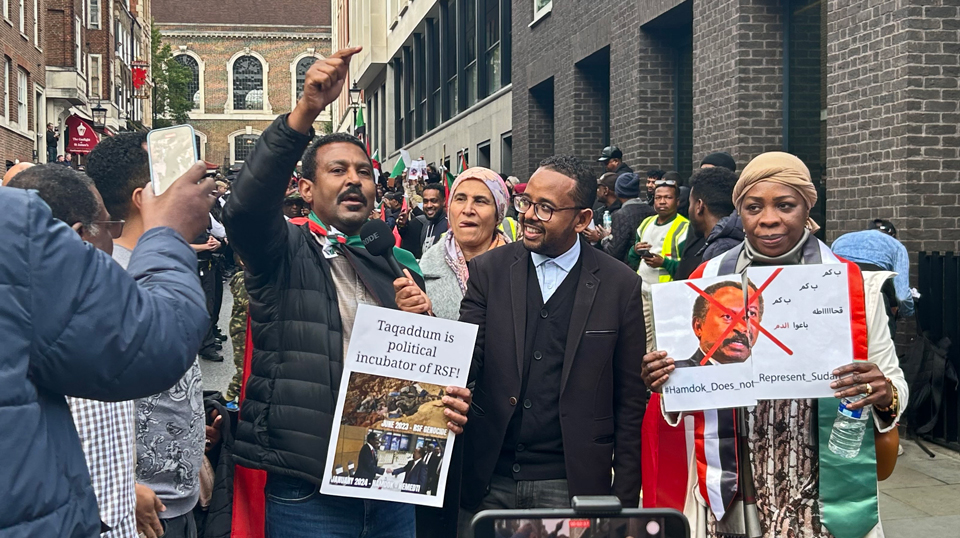
Protesters gather during former Sudan Prime Minister Abdallah Hamdok's visit to Chatham House in London (Photo: Amgad Abdelgadir / RD)
Chants of “Hamdok to the ICC” rang out from a throng of hundreds of protesters, who gathered outside Chatham House policy institute in central London on Thursday, where former Sudanese Prime Minister Abdalla Hamdok, prepared to address a select audience. When the event wound down, the streets outside Chatham House grew tense. Some protesters were unwilling to let Hamdok and his delegation exit unchallenged. The protest seemed to represent a rebuke of leaders who, despite their promises, have yet to fulfil the revolution’s aspirations.
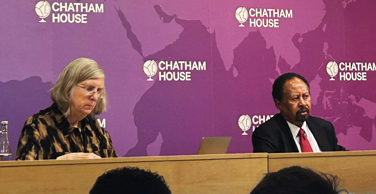
and Hamdok (r) address a select audience at Chatham House in London
(Photo: Amgad Abdelgadir / RD)
As the rumble of protesters – mostly diaspora Sudanese, some of whom travelled to London from as far afield as Birmingham and elsewhere in the UK – began to swell, so did their fervour, that pierced the quiet of central London. Their message could be understood from one of their chants: “Hamdok to the ICC [International Criminal Court].” It captured an anger that was clear and unapologetic. They felt let down, and their frustrations with leadership figures who once represented the hope of the December Revolution turned into a fierce spectacle, with a police response to match, a far cry from the more peaceful protests of last year.
Much like the hundreds who turned up to protest the event, Hamdok’s own words during the panel discussion being protested reflected their urgency. “The crisis in Sudan today is probably the most serious and the largest crisis in the world,” Hamdok emphasised in his address, citing harrowing statistics: “Over 150,000 lives lost, 10 million internally displaced, and 25 million facing starvation.” Whilst there was a sense of urgency in Hamdok’s words, his manner conveyed a measured and reserved tone. A tone that was certainly not expressed by those outside. For them, the statistics of the many dead and displaced he itemised, were symptomatic of an apparatus marked by failed promises and unfulfilled aspirations towards Sudan’s freedom, peace, and justice. They saw his meeting with the Rapid Support Forces (RSF) in Addis Ababa at the start of the year as giving credence to the paramilitary group.
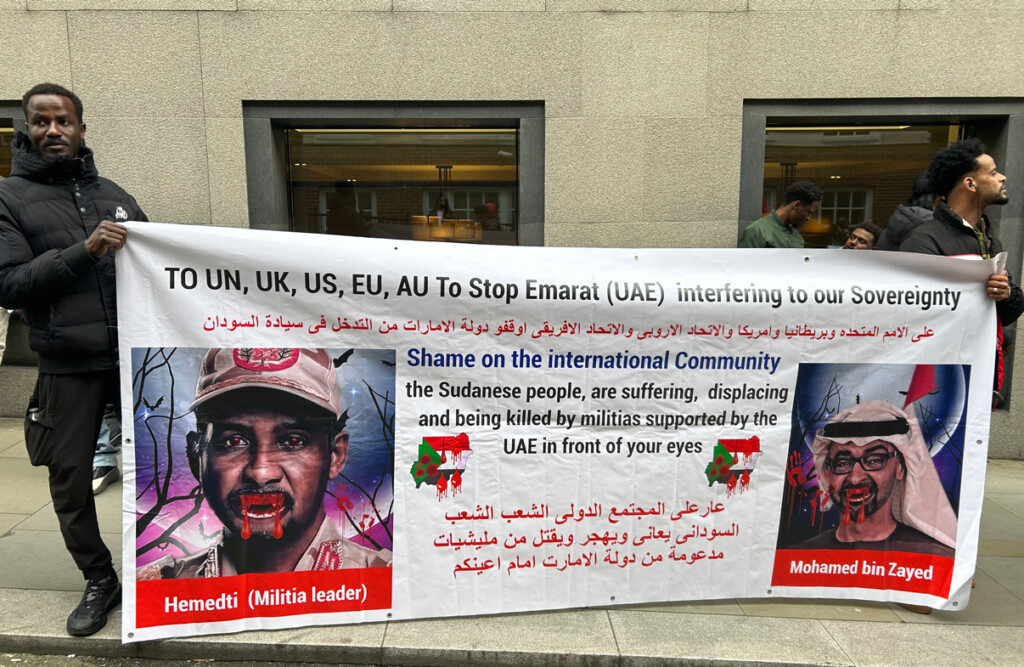
The former leader and head of the Civil Democratic Forces alliance (Tagadom) is seen by the British government, who hosted Hamdok, as the broadest pro-democracy and anti-war coalition, as per the words of Hamdok’s co-speaker at the event, Dame Rosalind Marsden, a former British and European Union diplomat to Sudan and an associate fellow at Chatham House. His chief goal as leader of the group was to advocate for a political solution, dismissing any military answer to Sudan’s crisis.
The protesters saw his alliance-building approach as naive and ultimately harmful, viewing Hamdok’s Tagadom alliance as too accommodating of both the Sudanese Armed Forces (SAF) and the RSF. The protesters’ demand for “one army, one people,” a pro-SAF chant said by some donning army fatigues in many cases, was a direct repudiation of any peace process that includes the RSF and their associated militia groups, who are accused of heinous human rights violations.
Hamdok’s delegation consisted of many representatives of Tagadom and those who charted the course during his time in office, including Khaled Omar Yousef, prominent member of the Empowerment Removal Committee and a key interlocutor in the Framework Agreement. Hamdok implored international actors, especially the UK, to consider enforcing a no-fly zone, creating safe zones, and possibly deploying peacekeeping forces, a force he referred to as “boots on the ground” to protect the civilian population. Hamdok was vague when later asked by a member of the audience about “who those boots might be”. He referenced previous missions like the United Nations–African Union Mission in Darfur (UNAMID), which deployed more than 40,000 troops to Darfur.
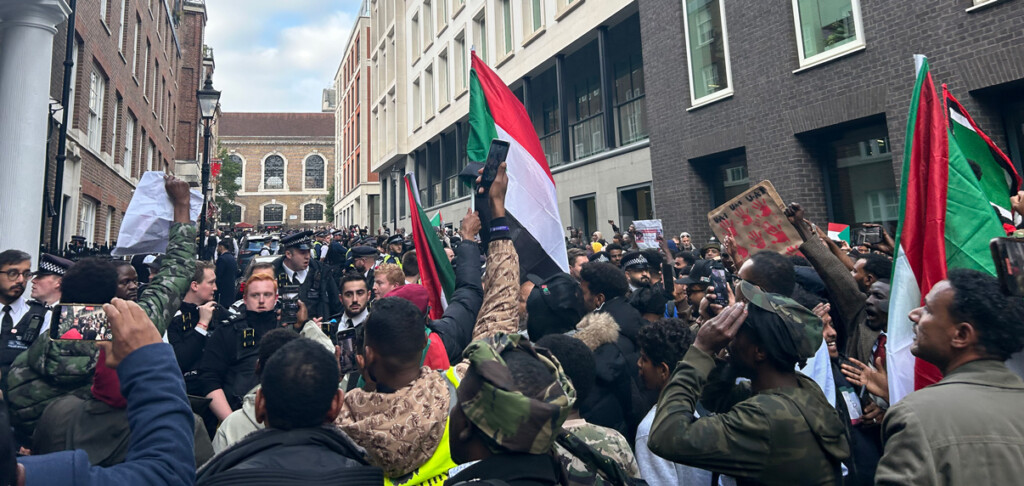
As the event wound down, the streets outside Chatham House grew tense. Some protesters, unwilling to let Hamdok and his delegation exit unchallenged, attempted to block vehicles, weaving through back alleys to prevent an alternative route. They hounded individual members of the delegation trying to make an exit, with some rowdy protesters being physically restrained by police forces, who did their best to shield the politicians. It ended with scattered confrontations between demonstrators and the police, each skirmish a testament to the frustration over Sudan’s unending turmoil.
Reflecting on the day’s protests, the Sudanese Communist Party in the United Kingdom and Ireland issued a statement condemning the violence that had erupted. The party criticised the harsh treatment of Sudanese women activists and media figures aligned with Tagadom, calling for a united, peaceful resistance against hate speech and violence. They reiterated the SCP’s historic commitment to peaceful protest and civilised dialogue, a legacy many within the diaspora were keen to uphold.
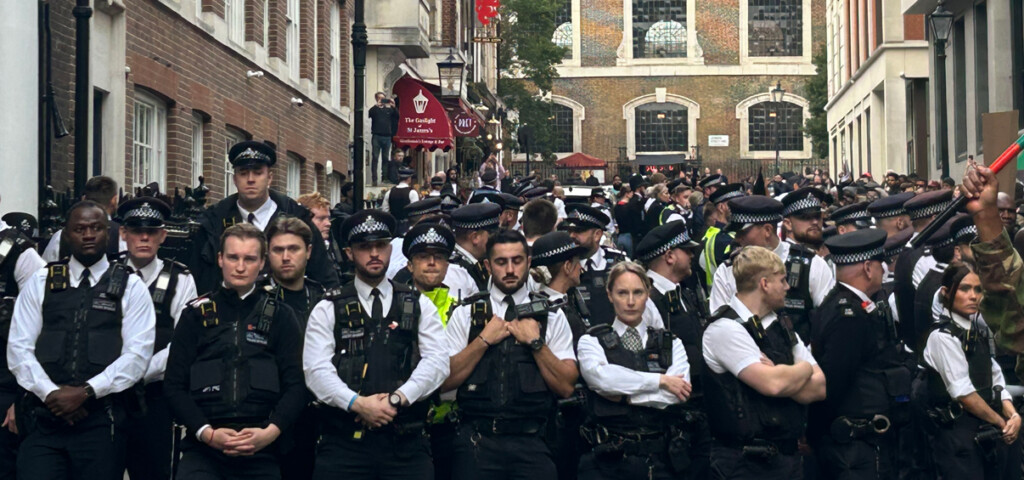
Hamdok’s words underlined the deepness of Sudan’s suffering and resonated with undeniable gravity: “This crisis is not a simple war between two generals. If the army commits atrocities, we condemn them, and the same goes for the RSF. This conflict has made our stance clear: we are not neutral, we are committed to the cause of our Sudanese people.” However earnest those comments may have been, the outside crowd’s repudiation illustrated the disconnect between what they saw as mere words and words that could no longer repair the fissure between leadership and the masses, who were now disillusioned and brimming with a trauma-turned-anger. These protests, whilst out of control, were an unforgiving rebuke of leaders who, despite their promises, have yet to deliver on the revolution’s dreams.
* Updated Nov 05 2024: An earlier version of this article suggested that Hamdok was invited to London by the UK government. This was incorrect.







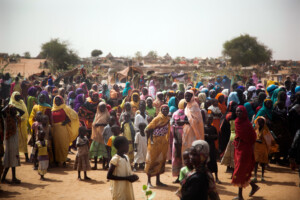
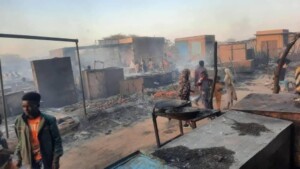
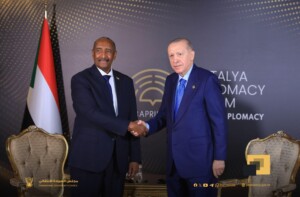

 and then
and then